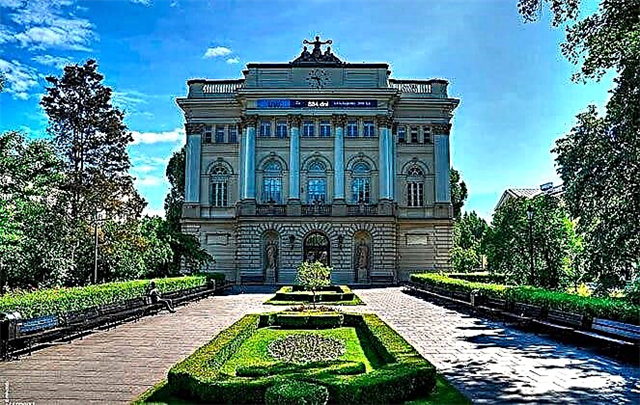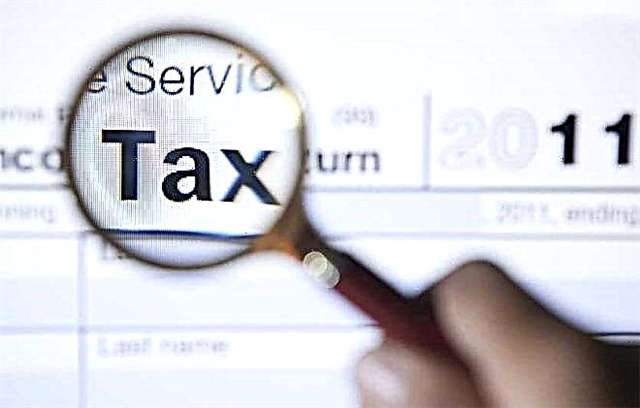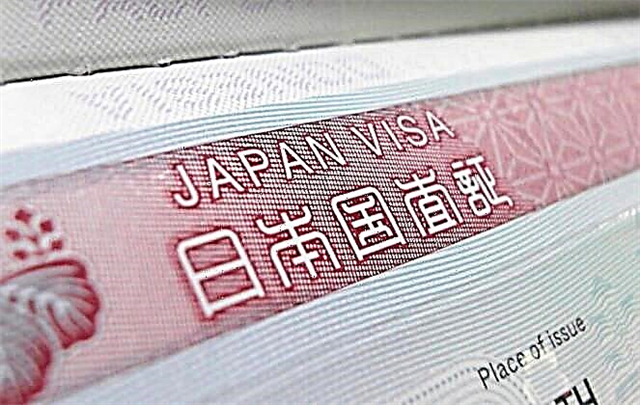The Land of the Rising Sun (this is how the name of the state in question is translated from Japanese) attracts guests from abroad with its absolutely unique color, unique landscapes and breathtaking skyscrapers, against which the ancient Japanese temples calmly flaunt. Russians will need a visa to Japan regardless of the purpose of the visit.

Varieties of Japanese visas
For a long time, the Japanese state was closed for visits by foreign citizens. Obtaining a visa was not only difficult, and in some cases impossible, since an invitation from a Japanese citizen was required. Starting in January 2021, the visa regime has been simplified for residents of many states, including the Russian Federation.
Representatives of other CIS countries need to enlist the support of the guarantor. It is for this reason that it is still difficult to independently open a visa permit to enter Japanese territory.
The only option for Russians to get to Japan without a visa is to get there by ferry from Vladivostok. To do this, you must fill out a questionnaire issued on board. Upon arrival, an entry stamp is put on the document, allowing you to stay in the country for no more than three days.

What a Japanese visa looks like today is not much different from a Schengen visa permit. This is a common stamp in your passport with travel and traveler details.
All types of visas are divided into two categories:
- Short term. Their further classification is based on the purpose of the visit:
- business - for business visits, advertising campaigns, cultural exchanges, participation in conferences and sports events;
- tourist - for traveling around the country for the purpose of recreation, sightseeing;
- guest room - for visiting relatives and friends who live in Japan on a permanent basis.
All visas of this category are issued for 3 months, provide the possibility of a single entry with a stay of no more than 15 days. If it is possible to justify the need for multiple visits to the country, a visa for multiple entries will be issued. The short-term stamp cannot be renewed and does not permit employment.
- Long term. Designed for those who need to stay in Japanese territory. Visas of this category are also subject to gradation based on the purpose of the visit:
- treatment;
- studies;
- Work;
- Marrying a Japanese citizen.
A student visa entitles you to work, albeit for a limited number of hours. A work visa is issued only on the basis of an employment contract with an employer.
Long-term visa permits are valid for a year and are not renewable. A new visa will have to be applied for according to the same scheme as the first one, but the Japanese migration authorities will certainly treat the applicant more loyally.
A transit visa for CIS guests is also mandatory. Japan, unlike some other countries, does not issue express visas at the airport. The only exceptions are cases of force majeure, for example, in the event of an aircraft breakdown and an emergency landing.
But in situations that do not depend on the tourist, the decision is made on an individual basis. The validity period of a transit visa is 72 hours.
What to do and where to go
 The process of how to independently apply for a visa to Japan consists of several stages:
The process of how to independently apply for a visa to Japan consists of several stages:
- Preparation of a package of documents.
- Payment of the required fees.
- Submission of papers to the consulate or embassy.
- Obtaining a ready-made visa permit.
If a visit is to be made with the support of the guarantor, before contacting the diplomatic mission, it is necessary to obtain the required documents from it (we will discuss them below).
Japan has made it mandatory for foreign citizens to submit biometric data. Only some categories of applicants are exempt from it:
- holders of diplomatic passports;
- children under 16;
- persons who have permanent residence;
- guests with an invitation from the government of Japan;
- tourists who are physically unable to undergo this procedure.
Upon arrival at the border, the Japanese security service of the country takes a photo of the entering foreigner.
Where to submit documents
A visa permit to Japan is issued at its representative office in the applicant's home country. Russians can contact:
| Name | Coordinates | Service regions |
|---|---|---|
| Embassy Moscow | Grokholsky lane, 27, (495) 229-25-50 | Persons residing in any regions other than those served by the Consulates General |
| Consulate General of St. Petersburg | Moika river embankment, building 29, (812) 314-14-34 | Leningrad region |
| Consulate General of Khabarovsk | st. Turgenev, building 46, (4212) 413-004 | Buryat and Jewish Autonomous Okrug, Khabarovsk Territory, Yakutia, Amur Region, Chita, Irkutsk Region |
| Consulate General Vladivostok | st. Verkhneportovaya, building 46, (4232) 267-502 | Kamchatka and Primorsky Territories, Magadan Region |
| Consulate General of Yuzhno-Sakhalinsk | Kommunistichesky prospect, house 18, 7-4242-72-60-55 | Sakhalin Region |
Submission of documents is possible at the Visa Application Center of Asian countries. Address: Moscow, st. Pyatnitskaya, house 43, building 3. Working hours: weekdays 9.00-18.00.
The VC is the official representative of the Japanese Embassy in Russia. In the absence of a guarantor of the trip, it is necessary to contact the visa center, which takes over this function.
You can also apply for a visa through a travel operator or intermediary. In this case, you must provide a power of attorney certified by a notary.
Preparation of documents
 What documents are needed for a trip to Japan depends on the purpose of the visit. Let's conditionally divide them into the main package and the additional one.
What documents are needed for a trip to Japan depends on the purpose of the visit. Let's conditionally divide them into the main package and the additional one.
The first one will be needed by all applicants, regardless of which visa they are applying for:
- Foreign passport and its copy.
- An invitation from the Japanese side.
- Letter from the guarantor.
- A copy of the guarantor's passport.
- 2 photos.
- A copy of the first page of a civil passport.
- Certificate issued at the place of work, indicating the salary, or a bank statement. The proof of the availability of funds can be a letter from the sponsor confirming his solvency.
- Visa application.
- Hotel reservation.
- Round-trip flights.
The Japanese side does not put forward requirements regarding the validity period of a foreign passport. But if it is less than the duration of the trip, difficulties may arise at customs.
Documents must be in English or Japanese. Insurance is not an obligatory item in the list of documents. But it would be better to arrange it all the same.
We fill out the form
 You can enter information in the application in English. Mistakes and corrections cannot be made. It is allowed to use a computer, but after drawing up the questionnaire, you need to print it out and put a personal signature on it.
You can enter information in the application in English. Mistakes and corrections cannot be made. It is allowed to use a computer, but after drawing up the questionnaire, you need to print it out and put a personal signature on it.
All fields in the application must be completed. If the answer to the question is no, you can put a dash. You need to indicate the place of birth in this order: city, region, country.
What else to pay attention to:
- The name and surname must be written as they are indicated in the passport.
- In the Other Names section, only those who changed their personal data leave information.
- In the column ID. No, you need to put a dash, since such a document is not issued in Russia.
- The type of passport is ordinary.
- The purpose of the trip should be indicated briefly: tourism, treatment, work, etc.
- The address must be left the one at which the applicant lives.
You need to print the form on two sheets, but only on one side. Otherwise, the completed form may not be accepted. You don't need to use staples or paper clips.Just attach the questionnaire to the general package of papers.
To avoid mistakes, use the sample of filling out a visa application form for a trip to Japan.
Additional documents
 Based on the type of permit requested, make sure you have prepared the other required documents for obtaining a Japanese visa. The list will depend on the purpose of the visit. When applying for a business, work and tourist visa, you will need:
Based on the type of permit requested, make sure you have prepared the other required documents for obtaining a Japanese visa. The list will depend on the purpose of the visit. When applying for a business, work and tourist visa, you will need:
- An invitation letter from the host. It must be drawn up on an official letterhead, indicating the details of both sides, the duration of the trip and the purpose of stay in Japan.
- Visit program.
- Financial guarantees from the party that will cover the costs of the entire trip.
- A copy of the company registration document, if the inviting party is a legal entity.
- Certificate of absence of tax arrears from the sponsor of the trip.
- Accommodation reservation, tickets.
If documents are submitted through a travel operator, the company must be submitted to the embassy:
- Certificate of registration of a legal entity.
- Completed form with information about the company.
- Tax report for the last quarter.
For a guest visa or a bride visa, you must prepare:
- An invitation from the host.
- A letter of guarantee indicating the place of residence of the invitee, the timing and purpose of the visit.
- Financial confirmation of the solvency of the person who will pay for the trip.
- Proof of relationship or marriage certificate (for fiance visa)
Students must attach to the list of documents an invitation from the university, an extract from the bank account on the availability of funds on it in the amount of 15,000 US dollars, confirmation of the availability of housing.
To obtain a transit visa, you will need a visa permit at the final point of arrival.
The procedure for obtaining a visa permit for children is the same as for adults. A separate package of documents should be prepared for a child traveling with parents:
- Foreign passport with a copy of the main spread (for children from 14 years old, young children can be entered in the parents' passport)
- 2 photos.
- Application (a separate form is required only for a child who is already 14 years old).
- Certificate from school or kindergarten. It must contain the address and telephone number of the educational institution. Date of issue no later than 30 days prior to the filing of the application.
- Birth certificate and a copy of this document.
- Sponsorship letter from father or mother and copy of passport.
- If the family names are different, you will need a marriage certificate.
If the child leaves with only one parent, the second must be given consent to take the minor out of the country. If both father and mother stay at home, such a document will be required from both. Copies of civil and foreign passports must be attached to it.
Take a sociological survey!
[yop_poll id = ”14 ″]
Japanese visa for residents of other CIS countries
A visa to Japan for Belarusians, Ukrainians, Kazakhs and representatives of other CIS countries is issued if there is a guarantor on Japanese territory. This condition is mandatory regardless of whether the applicant is the holder of a biometric or ordinary foreign passport.
Only a resident of Japan can act as a guarantor. The letter is intended for a specific person. The validity period of such a document is six months from the date of preparation.
The documents prepared by the guarantor are sent not to the consulate, but to the applicant, who submits them along with a package of papers.
The letter must indicate:
- the duration of the trip;
- visit program;
- the purpose of visiting the country;
- the relationship between the inviting party and the foreign guest;
- residence address.
 Everything that is indicated in the letter must be confirmed by documents. Particular attention should be paid to financial guarantees. The person who pays all the expenses needs to prove the solvency. A copy of the guarantor's passport must be attached to the package of documents.
Everything that is indicated in the letter must be confirmed by documents. Particular attention should be paid to financial guarantees. The person who pays all the expenses needs to prove the solvency. A copy of the guarantor's passport must be attached to the package of documents.
The guarantor for a tourist visit is a tour operator, for a business visit - a Japanese partner, for students - a university. If we are talking about a private visit, then any citizen of the country can be the guarantor, but in this case it will be necessary to prove the existence of some kind of relationship with him. It's just that an ordinary Japanese citizen who has no connection with the applicant cannot take on such a role.
How much time and money will it take to apply for a Japanese visa?
The production time for a Japanese visa ranges from 4 to 14 days. If you do not need to make inquiries to the Ministry of Foreign Affairs, an entry permit will be made within a few days. Weekends are not taken into account.
Additional time will be required during high tourist seasons. This is usually the cherry blossom season. Due to the heavy workload of the consular departments, the visa is made for at least two weeks.
The cost of obtaining a visa to Japan will be a pleasant surprise for those who apply for the first time. The fact is that, despite the closed nature of the state and the strictness of migration rules, for Russians a visa permit to enter the country is issued free of charge. The only fee you have to pay is for the postage of documents. The price for the service is about USD 10-15.
It's another matter if you need an urgent visa. In this case, not even the consular fee for a visa to Japan is charged, but a fee for the speed of document production:
- if less than 4 days before departure - 10,000 yen (approximately $ 93);
- if there are 4-5 days left before the trip - 4,000 yen (about $ 37).
The applicant also pays for the forwarding of papers in case of urgent appeal.
Express visa applications are only accepted when it comes to a tourist or transit visa. Long-term permits are not issued urgently.
Additional budget will have to be planned for those who apply to intermediaries or the visa center. These authorities set the amount of the contribution on their own. For some, it may exceed $ 100.
The cost of obtaining a visa to Japan for residents of other countries must be specified at the consulates of the countries where they live.
How to track the result of your visa request
 After the package of documents is submitted to the Japanese mission, the migration officer will issue a receipt to the applicant with the estimated date of issue of the visa permit. If there is a need for additional documents, this will also be indicated on the receipt.
After the package of documents is submitted to the Japanese mission, the migration officer will issue a receipt to the applicant with the estimated date of issue of the visa permit. If there is a need for additional documents, this will also be indicated on the receipt.
If the documents are not accepted due to an incomplete package of papers or errors in the application, they will be returned to the applicant, the reasons will be explained and asked to correct the shortcomings by returning with an updated application.
It is impossible to find out the status of the application at the Japanese consulate. But if 2 weeks have passed since the day when the request was submitted, and there is no answer, you can write a statement indicating the following information:
- number of the receipt issued by the migration officer;
- Name of the applicant;
- the date when the documents were accepted.
If such a request is submitted by the guarantor or the host, the application must indicate the name of the person who is applying and the nature of his relationship with the foreign guest. But such requests are not always satisfied, guided by the law on the protection of personal information.
What to do in case of refusal
Japanese consulates carefully monitor the procedure for issuing visa permits and are attentive to the verification of each paper submitted by the applicant. Do we need a visa to Japan for Russians, we found out, but what if the consulate refuses to issue it?
First, let's find out what could cause a negative decision:
- incomplete set of documents;
- errors in the questionnaire;
- inaccurate information;
- violation of the visa regime on previous trips;
- deliberately deceiving consular officers.
It should be remembered that a scrupulous check of documents is not carried out at the time of their receipt. Therefore, even if your papers were accepted, this does not mean that the request was approved.
If a visa is denied, the consulate reserves the right to communicate the reason or keep silent about it.
When the refusal is based on insufficient completing of the package of documents or incorrectly entered information in the questionnaire, you can correct the deficiencies and apply again. But this can be done no earlier than six months after the refusal.
If the negative response of the consulate is caused by deception on the part of the applicant or his violation of the rules of entry, then this period will be increased for a long time, and in some cases may even be prohibited from entering.
Outcomes
 Obtaining a Japanese visa is a mandatory procedure for all citizens of the CIS, regardless of the duration of the visit and the purpose of the trip.
Obtaining a Japanese visa is a mandatory procedure for all citizens of the CIS, regardless of the duration of the visit and the purpose of the trip.
To submit an application, you will need to enlist the support of a guarantor, which can be a legal entity (university, company, partner) or an individual (a resident associated with the applicant by some kind of relationship). It takes from 4 days to two weeks to review the application. Each document is carefully examined and checked.
No consular fee is charged from Russians. They pay only for the forwarding of documents and the service of urgent registration.
In case of refusal, a new filing of the application is possible after 6 months, but provided that the reason was not too serious: errors in the application or lack of documents.











